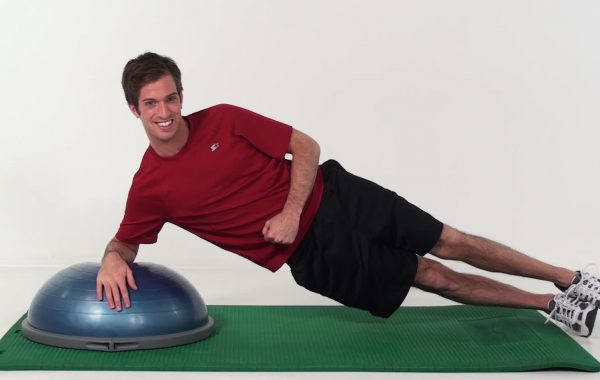What Are Post Rehabilitation Referrals?
Post rehabilitation referrals involve working with clients transitioning from physical therapy or medical treatment back to regular fitness routines. Unlike traditional personal training, this specialized area focuses on helping individuals recover from injuries, surgeries, or chronic conditions while avoiding re-injury.
Moreover, personal trainers equipped to handle post-rehab clients must understand medical terminology, orthopedic conditions, and safe, goal-oriented exercise programming tailored to specific needs. This knowledge bridges the gap between rehabilitation and full fitness recovery.
In this article, we’ll explore how personal trainers can establish themselves as trusted professionals for post rehabilitation referrals. As a result, this can enhance their careers while also supporting clients’ journeys to optimal health and well-being.
Build Your Foundation: Education and Certification to Gain Post Rehabilitation Referrals
To excel in post rehabilitation training, personal trainers need specialized education. First and foremost, understanding medical terminology, orthopedic conditions, and the principles of safe exercise prescription is crucial. Furthermore, courses from organizations like the American College of Sports Medicine (ACSM) or the National Academy of Sports Medicine (NASM) offer certifications in corrective exercise and post-rehabilitation fitness.
Key educational areas include:
- Learning about common injuries and conditions, such as ACL tears, herniated discs, and arthritis.
- Understanding contraindications and precautions for exercise programs.
- Gaining proficiency in functional movement screenings and progress assessments.
In addition to foundational education, trainers should familiarize themselves with emerging trends in fitness technology and injury prevention strategies. Attending industry conferences, subscribing to relevant publications, and networking with other professionals can help keep your skills up to date.
Pro Tip: Regularly attending workshops, webinars, and conferences ensures you stay current with advancements in post-rehabilitation fitness. Furthermore, consider pursuing continuing education credits to remain competitive in this growing field.
Develop Relationships with Medical Professionals
Securing post rehabilitation referrals often depends on building strong connections with healthcare providers like doctors, chiropractors, and physical therapists. These professionals frequently look for reliable trainers who can take over the next stage of recovery for their patients.
Steps to build these connections:
- Create a professional resume: Highlight your certifications, experience, and specialized training in post-rehab fitness. Be sure to include testimonials or client success stories.
- Market yourself effectively: Design professional brochures or booklets detailing your services. These materials should include clear descriptions of how you collaborate with healthcare providers.
- Schedule informational meetings: Approach local clinics or therapy offices to discuss how your services can complement their care.
Additionally, consider joining professional organizations, such as the Medical Fitness Association, to connect with like-minded professionals and build your reputation. Regular follow-ups with healthcare providers can also solidify your relationships.
Tip: Be patient. Building trust with medical professionals takes time, but consistent communication and demonstrated expertise will pay off in the long run.

Total PT Fitness Online - Create Workouts, Make More Money
Master the Art of Client Assessment
Working with post-rehab clients requires a deeper understanding of assessment techniques. Proper evaluations ensure that exercise programs are both safe and effective, considering the client’s limitations and goals.
Essential assessments for post-rehab clients include:
- Functional movement screenings to identify imbalances and weaknesses.
- Range of motion and flexibility tests to gauge recovery progress.
- Strength and endurance evaluations to create tailored programs.
Communication is essential during assessments. For instance, always discuss any discomfort or limitations clients may experience and adapt accordingly. In addition, work closely with referring healthcare providers to align your programming with their recommendations. If you want to obtain post rehabilitation referrals, this communication is crucial.
Remember: Transitioning from rehabilitation to fitness isn’t just about physical progress—it’s also about rebuilding confidence. Helping clients feel comfortable and empowered throughout the process is just as important as tracking their physical improvements.
Craft Tailored Programs with Appropriate Goals
Post rehabilitation training isn’t about pushing clients to their limits. Instead, it’s about helping them regain strength, mobility, and confidence. Therefore, setting clear, achievable goals is crucial to keeping clients motivated and on track.
Tips for creating effective post-rehab programs:
- Focus on gradual progression with low-impact exercises.
- Incorporate functional movements that mimic daily activities, such as squats or reaching motions.
- Monitor pain and discomfort closely to avoid setbacks.
- Use resistance bands, light weights, and bodyweight exercises to rebuild strength safely.
Additionally, leveraging tools like Total PT Fitness software, which provides a vast library of post-rehab exercise videos, can simplify program development. By integrating these resources, you can ensure clients practice movements correctly and progress at their own pace.
It’s also important to set milestones that align with each client’s recovery stage. For example, short-term goals might include walking a certain distance without discomfort, while long-term goals might involve returning to a favorite sport or activity.
Pro Tip: Always celebrate small victories. Acknowledging progress, no matter how minor, can significantly boost a client’s morale and motivation.

Market Yourself as a Post Rehabilitation Specialist
To grow your business in the post-rehab niche, effective marketing strategies are essential. Therefore, positioning yourself as a specialist by highlighting your expertise and showcasing the value you bring to clients’ recovery journeys can make all the difference.
Marketing ideas for post rehabilitation referrals:
- Create content, such as blogs or videos, explaining the benefits of post-rehab training.
- Offer free workshops or consultations to introduce your services to the community.
- Collaborate with local healthcare providers to distribute your marketing materials.
- Share client success stories (with permission) to build social proof and trust.
Social media platforms can also play a significant role in marketing your services. For example, posting educational content about post-rehabilitation exercises or sharing behind-the-scenes glimpses of client progress can help establish your authority.
Pro Tip: Networking is key. Attend local health and wellness expos or join community groups to connect with potential clients and referral sources.
Utilize Technology to Streamline Your Approach to Assist With Post Rehabilitation Referrals
Incorporating technology into your post-rehabilitation training can enhance both efficiency and client outcomes. Tools like fitness apps, online training platforms, and exercise libraries allow you to create customized programs with ease.
For example, using fitness software that tracks progress and provides instructional videos can help clients stay consistent and motivated. Additionally, virtual training sessions can provide flexibility for clients who prefer remote options.
Staying updated on the latest technological tools can also demonstrate your commitment to providing high-quality care, which can further strengthen your credibility with healthcare providers.
Why Post Rehabilitation Training Matters
Helping clients transition from rehabilitation to fitness is a rewarding and impactful niche in personal training. By gaining the right education, building connections with healthcare providers, and mastering client assessments, you can establish yourself as a trusted post-rehabilitation specialist.
In conclusion, whether you’re just starting or looking to expand your business, post rehabilitation referrals offer a unique opportunity to support clients on their journey to full recovery. At the same time, they allow you to set yourself apart in the fitness industry.
For more information on post-rehabilitation training, visit the American College of Sports Medicine (ACSM) or the National Institutes of Health (NIH) or the MedFitNetwork websites.
You may also be interested in:
Add 2 blog links here to our page
Ready to see how easy it is to train more clients, make more money and make your job easier?
Total PT Fitness software elevate your brand and can transform your personal training business. Sign up for your very own free 2 week trial. No obligation, no credit card required.
Professional Software for Personal Trainers and Wellness Professionals
Video exercise, fitness testing, nutrition counseling and phone app for clients

